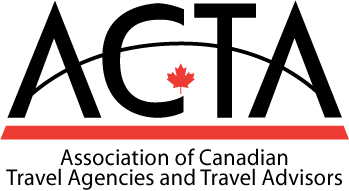Airline Not French-Friendly
Mark Bourrie, www.blacklocks.ca
Air Canada is only grudgingly in compliance with federal law on bilingualism, says the Commissioner of Official Languages. The criticism comes two years after the airline won a Supreme Court challenge under the Official Languages Act.
“Their enthusiasm, shall we say, has been muted,” said Commissioner Graham Fraser; “Other airlines see their ability to serve their passengers in their language of choice as a value rather than a burden. I think it’s unfortunate Air Canada is as resistant as it is to our attempts to help them achieve their obligations under the Act.”
The airline was the target of 369 complaints in a seven-year period alleging breaches of the law, the most complaints of any federally-regulated employer. The Supreme Court in 2014 dismissed claims of $19,000 in damages by an Ottawa couple who alleged they were denied service in French.
Testifying at the Commons languages committee, Fraser said airline management is “resentful” it must comply with the Languages Act as a condition of privatization in 1988. “They feel they are only saddled with this burden because the agreement of sale wasn’t negotiated properly 30 years ago, and if it had only been negotiated properly they wouldn’t have to do this stuff.”
“I think there are other private corporations – I’m thinking of Bell Canada for example – that are exemplary in the use of both official languages,” Fraser said. “We’ve previously recognized Rogers as also being exemplary in its service to Canadians in both official languages. I wouldn’t necessarily accept the claim that Air Canada is the most bilingual private corporation.”
Lawsuit Over 7-Up
Fraser credited the airline with bilingual service during the 2010 Vancouver Winter Olympics, but claimed it was a one-off initiative: “We discovered that employees were under the impression this extra effort that Air Canada did was just for the Olympics,” he said; “The employees all felt, ‘Well, that was just a special deal for the Olympics and we’ll go back to doing it the way we’ve always done it before.’ When I made the presentation of these audit results to Air Canada they were shocked and said, ‘We never said that.’ It wasn’t a matter of what they said; it was a matter of what they didn’t say.”
The Supreme Court case followed complaints by an Ottawa-area couple Michel and Lynda Thibodeau who said they were denied French-language service on 2009 Jazz flights to Atlanta and Charlotte, North Carolina. The Thibodeaus complained they were unable to speak French at check-in in Atlanta; that a service announcement of a change in the baggage carousel in Ottawa was in English only; and that Mr. Thibodeau ordered a 7-Up in French from a flight attendant and was served a Sprite instead. Thibodeau said the attendant appeared sarcastic and dismissive.
Air Canada acknowledged it assigned unilingual attendants to the U.S. flights, but said the baggage announcement was the responsibility of the Ottawa Airport Authority. English-only service by Atlanta check-in staff was okayed by the Commissioner of Official Languages, who noted it was “not an airport where there is significant demand requiring the provision of services in French”, according to court documents.
The Commissioner was an intervener in the case. Air Canada estimated 47 percent of its flight attendants and more than 50% of call centre employees are functionally bilingual.
